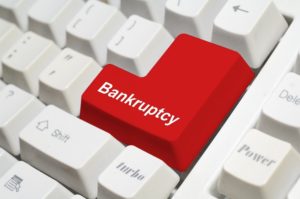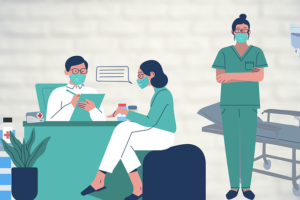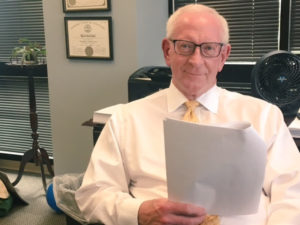 What You Need to Know About Avoiding Medical Bankruptcy
What You Need to Know About Avoiding Medical Bankruptcy
In recent years, medical bankruptcy has taken on new context. With the rise of pandemic and associated medical bills, many more people have gone into debt to cover their basic healthcare needs. Perhaps you’re wondering if medical bankruptcy might be able to help with your own debt. If so, we’re here to help.
What is medical bankruptcy? How does it work? And are there any other options if you have too many hospital bills?
What Is Medical Bankruptcy?
Medical bankruptcy isn’t a specific type of bankruptcy, like Chapter 7 or Chapter 13. It just refers to the cause of bankruptcy being, at least in part, medical bills you can’t pay.
Unfortunately, many, many American families know how this might happen: skyrocketing healthcare costs, often mixed with a lack of insurance, lead to shockingly high hospital bills. And it doesn’t take chronic illness or major surgery to make for an impossible situation: many medical bankruptcies happen from smaller, unexpected costs. Just one emergency room visit could lead to thousands of dollars in debt.
Fortunately through the bankruptcy system, you can file to clear these debts, along with other debts like credit cards and more.

How It Works
When you file for bankruptcy, whether Chapter 7 or Chapter 13, you ask the court for help to cover or clear debts like medical bills.
In Chapter 7, you work with your attorney to petition the court and ask for relief for unsecured debt. This usually refers to credit cards and medical bills. But it can also cover many other debts, like personal loans and more.
With Chapter 13, you and your attorney design a payment plan based on your debt and income. Working with the courts, you agree to pay into this plan every month at an amount that’s possible for you. At the end of a set period of time, the court considers your debts cleared. It can include unsecured debts like medical bills and credit cards, but also assets like your house note or car.
Both chapters of bankruptcy have their advantages. To determine which one might be right for you, our attorneys offer a free appointment, no strings attached.
 Alternatives to Filing Bankruptcy Over Medical Debt
Alternatives to Filing Bankruptcy Over Medical Debt
Obviously, we all want to avoid taking on enormous debt whenever possible. In the current system, you have a few options to try before you might need medical bankruptcy.
Fundraising / Crowdsourcing
Crowdfunding has emerged as a popular option for people who need financial assistance to cover medical bills. These platforms provide a way to share your story and solicit donations from friends, family, and even strangers willing to offer support.
However, crowdfunding campaigns may not always reach their funding goals, leaving you still burdened with substantial medical expenses. Additionally, you may feel uncomfortable sharing personal medical details publicly or relying on the generosity of others for essential healthcare needs.
As a result, while crowdfunding can offer a lifeline for some, it may not work to rely solely on this method to pay for medical bills.
State Medical Relief Programs
State medical relief programs provide assistance to people in debt from medical expenses. These programs vary by state, but often offer a range of services, including:
- financial assistance for medical bills
- access to discounted or free healthcare services, and
- support for prescription medications.
To qualify, the programs typically consider income level, household size, and medical necessity.
 Negotiating with the Hospitals
Negotiating with the Hospitals
In some cases, hospitals might work with you to lower the costs or create a payment plan. Some even have offices within their billing departments to help.
To have the best chance of success, start by reviewing your medical bills and statements carefully for accuracy. Don’t hesitate to question charges or negotiate fees with healthcare providers.
If you can show them you’re willing and able to pay down some of the debt, they might work with you to keep you from disaster.
 What to Do When You Can’t Avoid Bankruptcy
What to Do When You Can’t Avoid Bankruptcy
Even with all of the above options, some people simply have too much medical debt to clear it without bankruptcy. Fortunately, while the decision to file might be hard, the process is simple.
Our Memphis bankruptcy attorneys will talk through all of your options and figure out a plan based on your goals.
If you’re just worried about medical bills, we’re happy to help with that. But perhaps you also need to stop foreclosure and clear credit card debt as well? We can help with that, too.
We work with you, and for you, every step of the way. And we never charge extra if you have complications or questions. That’s how we’ve earned top reviews online and multiple awards for client satisfaction.
To get started, contact us online today or call us at 901-327-2100.
